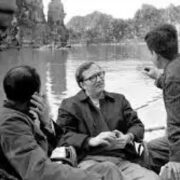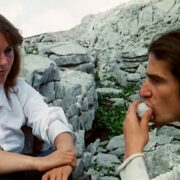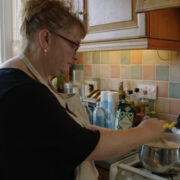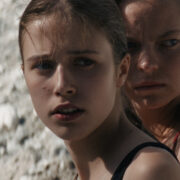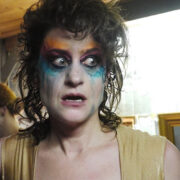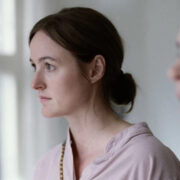THE SEALED SOIL: A Bold Feminist Feature from Pre-Revolutionary Iran
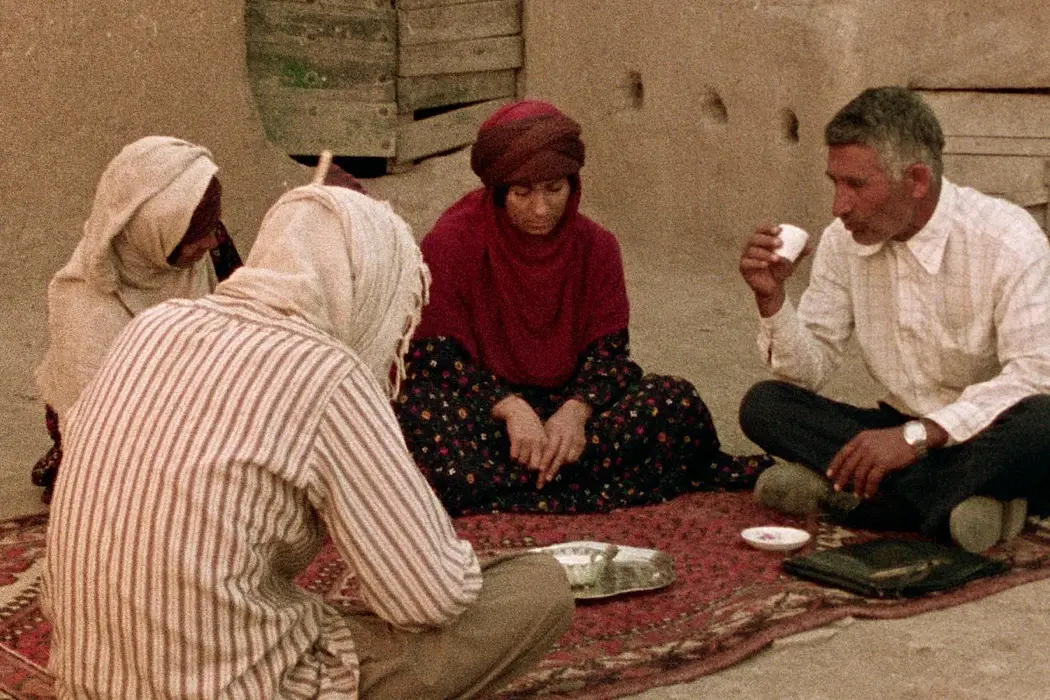
Lee Jutton has directed short films starring a killer toaster,…
The earliest complete surviving feature film directed by an Iranian woman, The Sealed Soil examines the clash between long-standing traditions and encroaching modernity in one small village, where a young woman stubbornly resists the pressure to be married off. Written and directed by Marva Nabili, the film was made without the official sanction of the pre-revolutionary Iranian government and has never been screened in its native land despite achieving critical acclaim elsewhere. Now newly restored in 4K by the UCLA Film & Television Archive, The Sealed Soil is a film of measured pace, meditative atmosphere, and female frustration that deserves the comparisons it has received to the Chantal Akerman classic Jeanne Dielman.
Girl, You’ll Be a Woman Soon
The heroine of The Sealed Soil, eighteen-year-old Roo-Bekheir (Flora Shabaviz), wakes every morning in the poor village she calls home to walk through the same monotonous household chores—sifting grain, fetching water, feeding chickens—in an almost ritualistic fashion. Yet her quiet compliance with these duties belies a hidden rebelliousness that lives within her, one that reads newspapers and removes her head covering in the safety of her secret spot in the woods, allowing the rain to freely run down her hair.
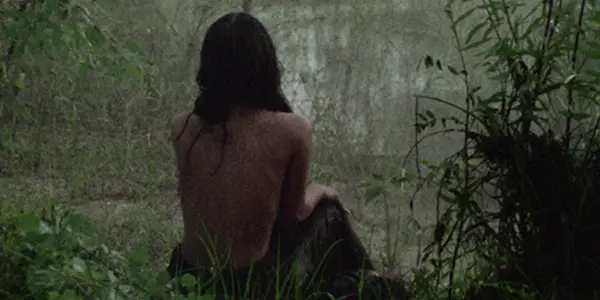
Roo-Bekheir’s village will soon be demolished for a construction project; the residents have been asked to relocate to a more modern village with running water nearby, but Roo-Bekheir refuses to even visit it. She also repeatedly refuses to get married despite the various suitors showing up at her doorstep. At her age, in her culture, this is considered unseemly to the point of being suspicious; at one point, the village chief points out that her mother was married at the age of seven and had four children by the time she was Roo-Bekheir’s age. “Today you can’t force a girl to marry a man…today the girl decides,” the chief muses with an air of nostalgia.
Different from the Others
Like that of lonely housewife Jeanne Dielman, Roo-Bekheir’s internal anguish—so long held in check by the almost mindless repetitiveness of her life—eventually gives way to external panic, culminating in a nervous breakdown that leads her family to hire an exorcist to rid her of her demons. Yet Roo-Bekheir is not possessed by anything other than herself, and her desire for something different than the future laid out so neatly for her and other young women by the repressive and misogynistic society in which they live. She’s not entirely sure what that something different is, and her confusion adds to her anxiety. She gets glimpses of what it could be in the form of the local teacher, who walks around in Western clothes with her head bare and encourages her charges to embrace modern habits like shampooing their hair every day despite the impracticality of doing so in an old-fashioned village where soap is scarce. Yet Roo-Bekheir’s reluctance to visit the new village shows that she doesn’t quite believe that this strange new world is an option for her either; after all, changes on the surface, like uncovered hair and running water, don’t necessarily equal changes that matter, especially if you can still be forced into a marriage you do not want.
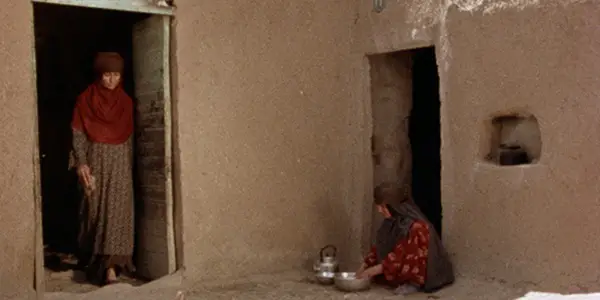
Shot with a distant and observant eye on 16mm film by cinematographer Barbod Taheri, The Sealed Soil makes the most of the rich colors of the Iranian landscape; the warm tones of the clay and dirt in the village courtyard where Roo-Bekheir does most of her daily chores contrast sharply with the cool greens and blues of the riverside in the woods where Roo-Bekheir finds some kind of freedom. Shabaviz—the only professional actor in the cast—gives a remarkable performance, one so characterized by restraint that the moments in which she lets go are all the more powerful to behold. Nabili’s direction is a similar feat of control, which aptly reflects the strict conditions of the society that she is critiquing on screen.
While The Sealed Soil runs only ninety minutes, it feels longer due to the film’s slow and steady pace, which is emphasized by its reliance on long and static shots. This is a film that demands your attention and your patience as the tension bubbling within Roo-Bekheir gradually rises to a rolling boil. There are admittedly some moments in which this is extremely difficult to do—fitting, considering the stifling monotony of life that is being depicted on screen—but, like Jeanne Dielman, if you stick with it, you will ultimately be rewarded.
Conclusion
A stunning snapshot of young womanhood in a very specific time and place, The Sealed Soil is a classic of world cinema that deserves to be discovered by new audiences.
The new 4K restoration of The Sealed Soil opens at BAM in New York on May 30, 2025, with additional markets to follow.
Does content like this matter to you?
Become a Member and support film journalism. Unlock access to all of Film Inquiry`s great articles. Join a community of like-minded readers who are passionate about cinema - get access to our private members Network, give back to independent filmmakers, and more.
Lee Jutton has directed short films starring a killer toaster, a killer Christmas tree, and a not-killer leopard. Her writing has appeared in publications such as Film School Rejects, Bitch: A Feminist Response to Pop Culture, Bitch Flicks, TV Fanatic, and Just Press Play. In addition to movies, she's also a big fan of soccer, BTS, and her two cats.



